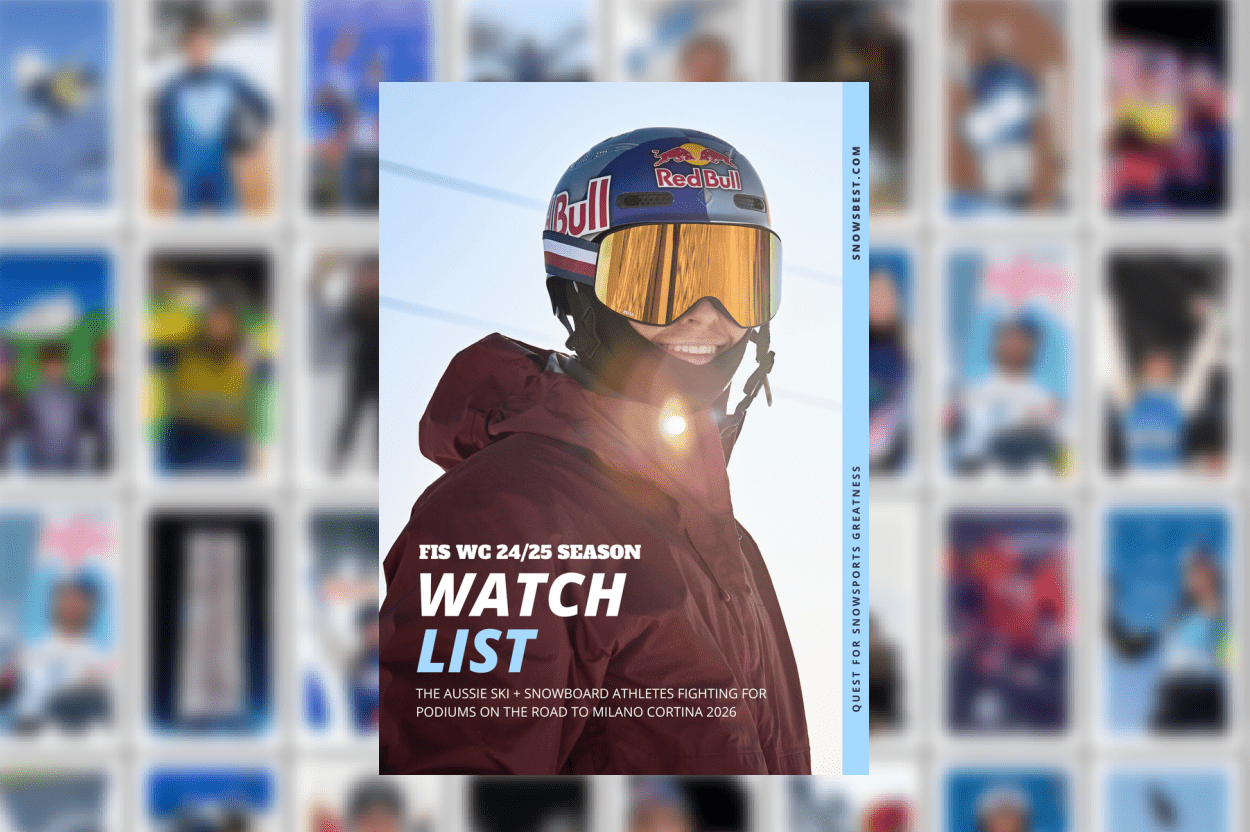The outrage this year that snow sports are, shock horror, expensive has gone next level across social and mainstream media in a world where only engagement counts.
Posting about the cost of single day lift pass prices at Australian ski resorts is the content equivalent of shooting fish in a barrel. Scream outrage at paying $249 for a day lift pass on TikTok and watch the millions of views roll in, whether you paid for the lift pass or not.
This weekend yet another piece on the prohibitive cost of skiing made it to the pages of a New South Wales state wide newspaper. Yet snow sports have never been cheap – we’re not talking about soccer where all you need is a ball and a field. The cost of skis, snowboards, helmets, outerwear, base layers, goggles and gloves can set you back a Contiki tour to Bali before you’ve even stepped on snow and bought a lift ticket and accommodation.
Which is why the ALDI snow sale has been, until recently, akin to a Taylor Swift concert crowd every May. The fact that in 2024 you can still get snow gear in ALDI’s special aisle (two months later) says more about the tightening of belts than it does about skiers “boycotting” home grown resorts and fleeing to Japan. Because, they still need to have ski gear to take to Japan.
Don’t get me wrong, we know there is a cost-of-skiing crisis during a cost-of-living crisis but skiing, unlike water and energy, is still a privilege not a right.
Yes, the $249 day lift passes are 40% more expensive than in 2010 when a one day pass was around $103 (the equivalent buying power of $147 today according to the inflation calculator). But even saying lift passes are $249 for a day isn’t correct.
A quick online perusal for August and you’ll find you can get a mid-week single-day lift pass for $138 at Mt Buller, $179 at Thredbo, $169 at Falls Creek and also at Hotham and $219 to ride Perisher’s 1245 hectares of terrain. Buy multi day passes and those numbers drop further, do them in the “value season months” and they drop again. Take a three day lift and lesson family holiday for four at Mt Buller and pay $149 a day for pass AND ski lesson. You get the point.
Ski resorts have mammoth infrastructure costs to buy and run chairlifts and then to create artificial snow in a time where the seasons are getting shorter and the cost of everything getting higher. In a capitalist world that values private enterprise profit above all else, resorts are also, surprise, surprise, working to make a profit (they are a business after all) and if they have public share holders then they also have a legal responsibility to make that profit.
Now, compare the cost of a day pass to the $108+ cost of an hour at UrbanSurf in Melbourne or Sydney (another adventure sport that requires expensive equipment to operate far from the coastline) and you’ll be thankful for the 8.30am to 5.30pm $249 lift pass price.
While everyone loves pointing the finger at the resorts, they forget that accommodation is one of the biggest outlays for a ski holiday, as is National Park passes ($24 a day in NSW and $64 a day in Victoria for Falls Creek or Hotham). Add petrol and food costs, shuttles, Skitube, plane flights and then more.
With all this talk of day pass prices, we’re forgetting that season pass prices are on par for inflation at Thredbo since 2011, meaning they have not increased. A Thredbo 2024 season pass is $1795 and in 2010 was selling at $1275 (equivalent to $1799 today according to the inflation calculator).
Perisher, Falls and Hotham’s Epic Australia 2024 Pass is actually cheaper than the Perisher Freedom Pass in 2011 ($699 or equivalent to $952 inflation calculator) and covers now not one but three Aussie resorts plus 75 global resorts for around $950 early bird.
Also consider some more food for thought that Australians average wage in 2024 is much higher than in 2010. The Australian Bureau of Statistics has the 2010 average salary as $51,923 which is, with inflation, the equivalent to the spending power of $73,102 in 2024. Yet the country’s average salary in 2023 was $95,500. You do the math. It’s not the cost of skiing that is the problem, it’s the cost-of-living (13 interest rate rises in 15 months) encroaching on skiers accessible amounts of discretionary spend.
Yes, again, more Australians are skiing and snowboarding overseas but many are doing that thanks to the multi-resort passes that include Aussie resorts. They may choose not to ski in Australia due to the cost but they’ll still use that Aussie season pass to ski overseas. Complaining you can’t ski in Australia, while still skiing in Japan because it’s cheaper, is still a privileged problem.
However, there is no doubt that day pass prices are blocking the growth of the sport.
If we want skiing and snowboarding in Australia to continue and to grow and diversify then we need to encourage newbies to try the sport and the current day pass prices (along with accommodation and food and more) don’t support that.
Once people are hooked on something they’ll throw whatever they can at it, and because skiing and snowboarding is addictive even those die-hards who are complaining about the cost are still finding a way to either ski at home or ski abroad or ski every second season. Because we’ll do whatever it takes to get that freedom feeling that skiing brings.
The best value for a beginner skier right now is Charlotte Pass and Selwyn, both owned by the Blyton Group. They’re smaller boutique resorts perfect for a new skier or boarder or a family and they play to their market. Charlotte Pass offers the $2 Tuesday deal (second person pays $2) that encourages skiers/boarders to bring a friend, which we love because it’s about sharing the love of snow.
Perhaps that’s where we need to start, by sharing. If you have the discretionary spend then shout your mate a lift pass.
Because, have you heard? Skiing and snowboarding is not cheap.
*Yes, we receive advertising dollars from ski resorts at home and abroad but that has never stopped us from reporting on fallen chairlifts or calling out sexist resort social media when we see it.

































